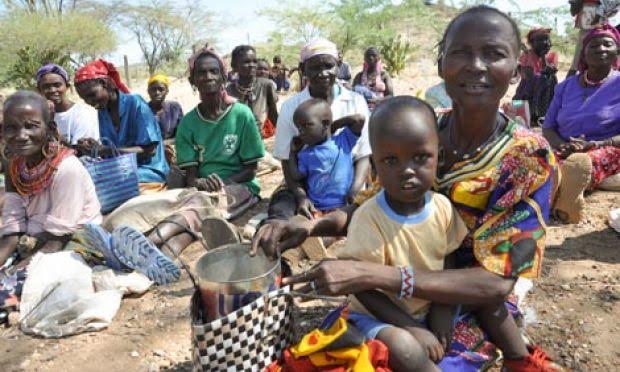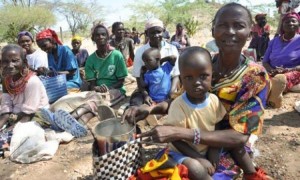
 The number of Ethiopians who will need food aid by the end of this year has surged by more than 1.5 million from earlier estimates due to failed rains, the Office for the Coordination of Humanitarian Affairs (UNOCHA), the World Food Programme (WFP) and the UN children’s agency UNICEF said in a statement on Monday.
The number of Ethiopians who will need food aid by the end of this year has surged by more than 1.5 million from earlier estimates due to failed rains, the Office for the Coordination of Humanitarian Affairs (UNOCHA), the World Food Programme (WFP) and the UN children’s agency UNICEF said in a statement on Monday.
A total of 4.5 million people in the country will require assistance in the current year, and the country needs an extra $230m from donors to secure aid for half of the needy population, according to the UN.
“The belg rains were much worse than the National Meteorology Agency predicted at the beginning of the year. Food insecurity increased and malnutrition rose as a result,” said David Del Conte, UNOCHA’s acting head of office in Ethiopia, referring to the short, seasonal rainy season that stretched from February to April.
Areas normally producing surplus food in the Horn of Africa country’s central Oromia region were also affected by shortages, the statement said, adding lack of water had decreased livestock production and caused livestock deaths in other pastoralist areas.
In parts of the south and north-east, initially promising rains have stopped abruptly, with the little pasture and shrubs generated by the rain now close to drying up, and the current harvest expected to be well below normal.
The country of 96 million people is one of Africa’s fastest-growing economies, but failed rains have devastating consequences for food supplies.
The UN cautioned that the anomaly could further affect Ethiopia’s “kiremt” rains that stretch from June to September.
